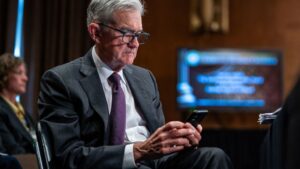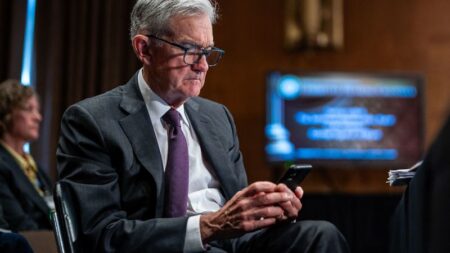In a significant legal triumph, Mark Johnson, a former HSBC trader, has had his fraud conviction overturned after an arduous nine-year struggle for justice. Johnson, now 59 years old, had been embroiled in a complex case concerning the manipulation of foreign exchange rates. His conviction, which dated back to 2017, stemmed from an incident involving a large foreign exchange trade that took place six years earlier.
Johnson’s ordeal began when he was found guilty of fraud related to his dealings with a client named Cairn Energy, for whom he executed a transaction worth approximately $3.5 billion by converting dollars into pounds. Prosecutors at his trial alleged that Johnson conspired with a colleague to inflate the price of the British currency (sterling) against the US dollar before executing the trade. This strategy, commonly known as ‘front-running’, aimed to generate quick profits for HSBC by purchasing currencies in advance of significant transactions.
Despite the grave allegations against him, Johnson maintained his innocence throughout the entire process. Following his conviction, he served time in both US federal prisons and Wandsworth Prison in the UK. After exhausting several avenues of appeal, he was eventually released on license in 2022. His legal team’s recent appeal capitalized on changes in US law in 2023 that effectively nullified the legal basis for his prosecution, a move that paved the way for an appeal court ruling to grant him a full acquittal.
Johnson’s attorney, Alexandra Shapiro, expressed her satisfaction with the court’s decision, stating, “We are delighted that justice has finally been achieved for Mark Johnson after a nine-year ordeal. This is a case that never should have been brought.” Her statements reflect a larger sentiment surrounding Johnson’s case; many believe it was a misapplication of legal practices in a complex financial industry setting.
In an interesting twist, the ACI Financial Markets Association, a prominent foreign exchange industry body, had petitioned during Johnson’s trial arguing that pre-hedging — the practice of buying a currency ahead of completing a large trade — is a normal and lawful industry practice, not a fraudulent one. This assertion casts doubt on the prosecution’s argument, highlighting the sometimes nebulous boundary between legitimate market strategies and illegal manipulation.
Often drawing attention to the greater implications of his conviction, Johnson’s case was underscored by political dynamics. He was arrested on July 19, 2016, shortly after accompanying his son and a friend to John F. Kennedy Airport while preparing to return to the UK. His arrest coincided with mounting demands from Congress for the US government to pursue punishments for HSBC employees, who were perceived to have previously skirted justice.
Particularly notable was the congressional report entitled “Too Big to Jail,” which unearthed past interventions by the British government on HSBC’s behalf during a scandal involving the bank’s dealings with a Mexican drug cartel and US-sanctioned countries. This report argued against a backdrop of previous leniency shown towards large financial institutions, leading many to see Johnson’s conviction as an emblem of larger systemic issues within the banking sector.
The aftermath of Johnson’s ordeal is poised to provoke further discussion and reflection within the financial and legal communities. The contrasting outcomes for Johnson and his alleged co-conspirator, Stuart Scott, who contested extradition and had his charges withdrawn by the US Department of Justice, raises pressing questions about fairness and consistency in prosecutions related to financial crimes.
As Mark Johnson embarks on the next chapter of his life, he is described as looking forward to moving beyond this turbulent portion of his existence. His case will undoubtedly remain a significant touchpoint in discussions about ethics, law, and accountability in the realm of international finance.











